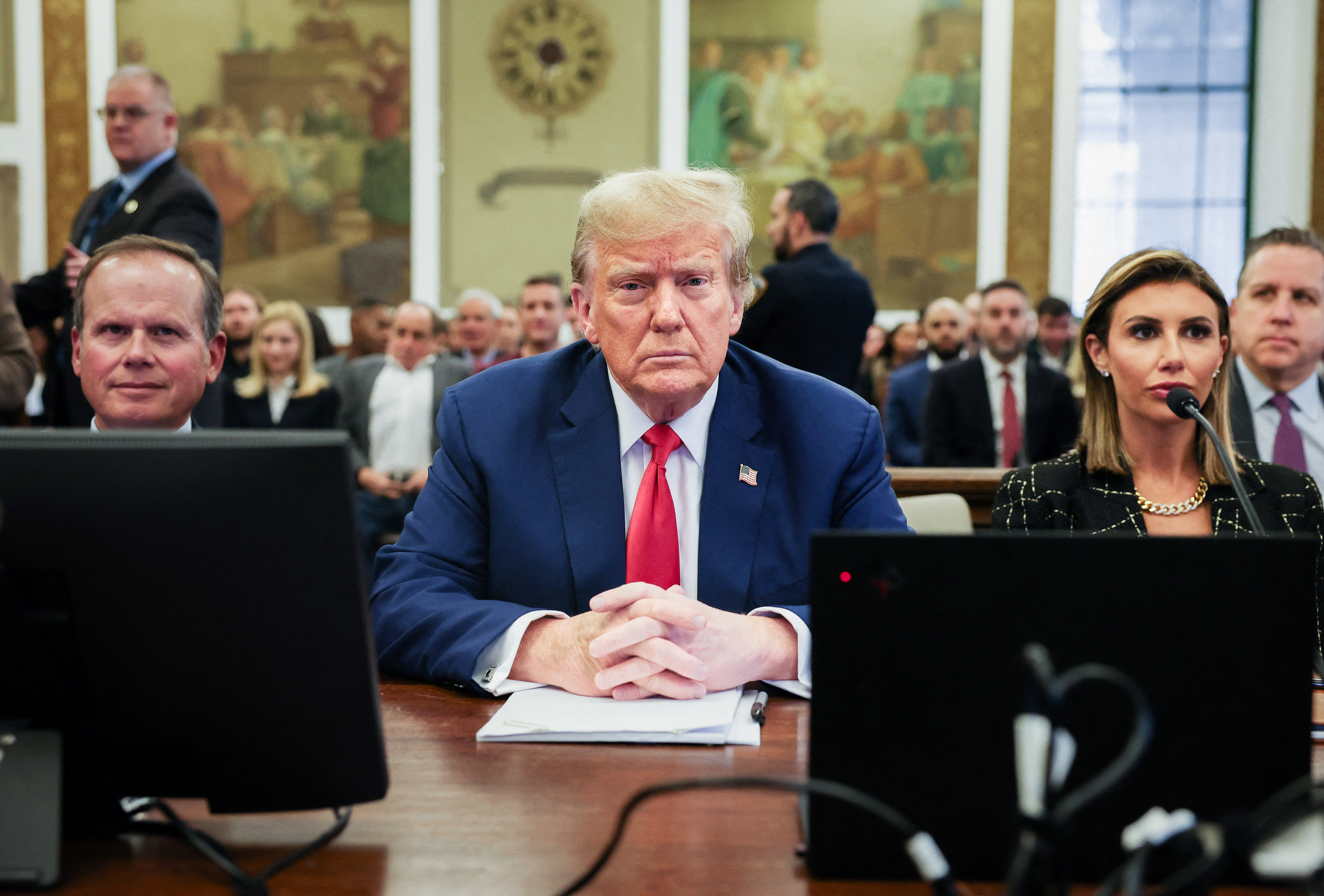
Updated
Trump Decries ‘Vicious’ Case in Courtroom Speech in NY Civil Fraud Trial
Save

Former US President Donald Trump sits at the New York State Supreme Court during the civil fraud trial against the Trump Organization, in New York City on Jan. 11, 2024. Shannon Stapleton/POOL/AFP via Getty Images
Here is the latest
•
AG James: Case Not a Personal Vendetta
•
AG Says Eric Trump, Donald Trump Jr. Are as Liable as Trump
•
AG: Trump Organization Misrepresented Properties
•
AG Argues Materiality Is 'What the Reasonable Banker Would Think'
•
Trump Says He'll Attend Criminal Trials